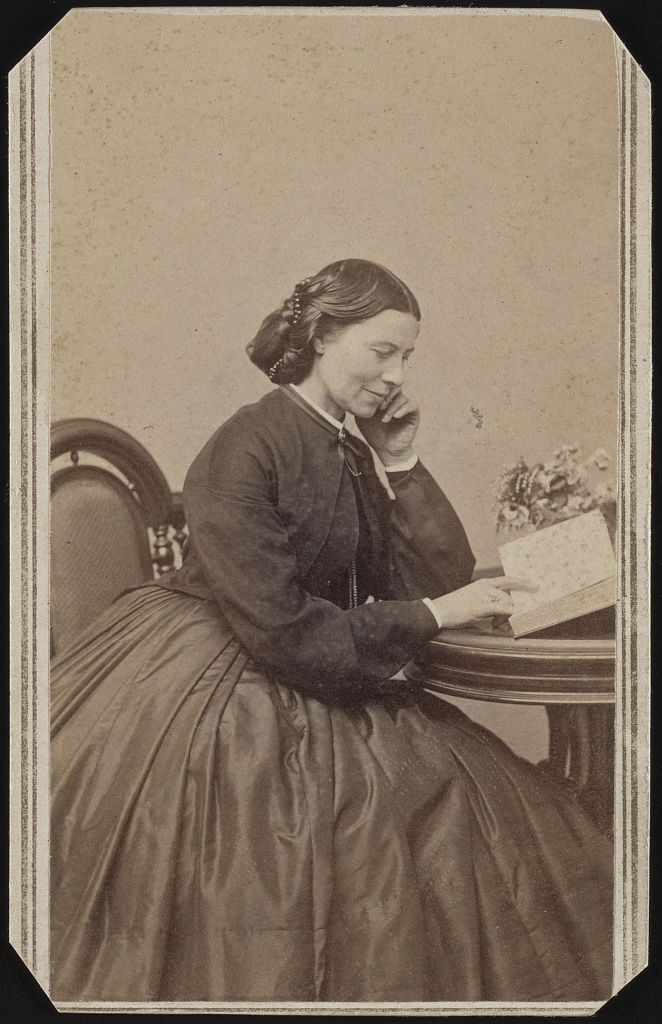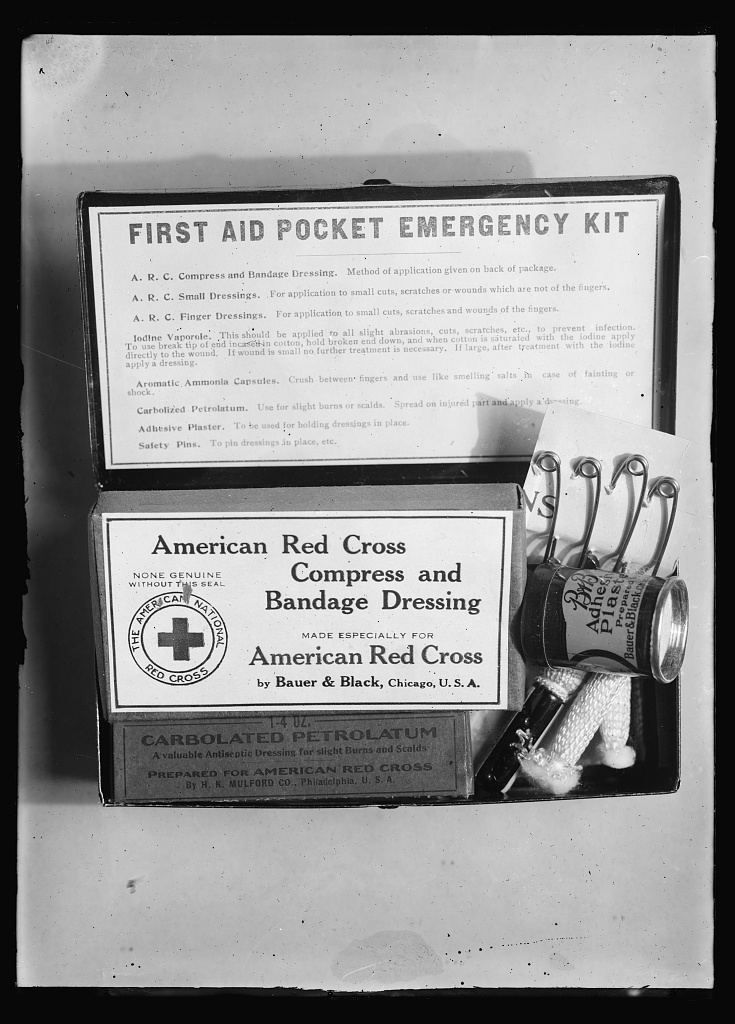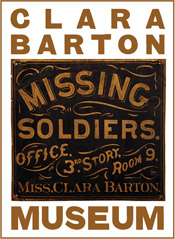Clara Barton: First Aid Practitioner, Educator, and Advocate
Clara Barton never received any technical training for nursing, due largely to the fact that nursing as a profession didn’t exist before the Civil War. Prior to the conflict, her only medical experience came when she was 11 years old. She aided her brother in recovering from a bad fall sustained during a barn-raising near their home in Massachusetts.
Clara Barton’s first experience in assisting wounded soldiers came just days after the start of the Civil War, when she visited with and gave supplies to soldiers of the 6th Massachusetts while they were quartered in the Capitol building. The Massachusetts soldiers had been attacked by an angry mob while passing through Baltimore on April 19, 1861. She quickly understood that the greatest need during the war was going to be for support at the front—at the field hospitals established on or near the battlefields. She began collecting food, clothing and supplies and distributing them to the soldiers and surgeons. Her work administering first-aid on the front lines began in the aftermath of the Battle of Cedar Mountain in 1862, continued throughout the war, and was maintained for many years thereafter. Her efforts at places like Antietam, Fredericksburg, South Carolina, and others earned her the moniker “Angel of the Battlefield.”

Clara Barton c 1865 Courtesy of the Library of Congress
As she spent more time among the soldiers, it became clear that Barton was a natural at nursing and first-aid. Strenuous work though it was, she grew to love it. She wrote to her father that “I don’t know how long it has been since my ear has been free from the roll of a drum. It is the music I sleep by, and I love it … I shall remain here while anyone remains, and do whatever comes to my hand. I may be compelled to face danger, but never fear it, and while our soldiers can stand and fight, I can stand and feed and nurse them.”
Barton’s efforts at the field hospitals were multi-faceted. In addition to providing much needed supplies she also prepared food for the soldiers, noted the names of the wounded, built fires, and did whatever else was needed. She administered aid to the wounded when she could, assisting the surgeons by providing them with medical supplies and comforting the soldiers in their time of need. She also lobbied the politicians in Washington for improved care of the wounded. Barton tried her best to put to words the desperate need for more supplies and aid at the front lines in her diary: “The surgeons do all they can, but no provision had been made for such a wholesale slaughter on the part of any one, and I believe it would be impossible to comprehend the magnitude of the necessity without witnessing it.”
Barton rallied others to assist with the war effort, in particular by encouraging women to gather supplies for the relief of solders from their home states. She also stressed that supplies should be gathered before they were needed—there would always be another battle or circumstance in which they would be required. In December 1861, she wrote to the Ladies Relief Committee of Worcester, Massachusetts that “I feel while passing through [the camps], that they could be better supplied without danger of enervation from luxuries. Still it is said that ‘our army is supplied.’ It is said also, upon the same authority, that we “need no nurses,” either male or female, and none are admitted.”
Barton discovered that the faster relief efforts could reach the scene of a battle, the better medical care soldiers received, which is why she preferred to act on her own rather than as part of a larger public or private group. Acting as an individual gave her flexibility to make decisions more quickly about where to deliver aid.
Decades after the Civil War, Barton’s passion for first-aid took the form of spreading awareness of the importance of first-aid in civilian life. In 1905 she formed the National First Aid Association of America. This new organization was designed to teach the public how to assist in times of personal injury and localized emergencies. If everyone could be capable of administering lifesaving care in critical moments, then the United States would be a safer place.

Clara Barton’s efforts with the National First Aid Association of America helped make first aid kits like this (c 1919) more common. Courtesy of the Library of Congress
Clara Barton was unique in that she acted as an intermediary between the daily life of civilians and politicians and emergency situations on battlefields. She helped others understand the importance of medical supplies and first-aid in emergency situations thanks to her personal experience. By passing on the importance of first-aid knowledge, she played an important role in moving the nation toward greater emergency preparedness.
Tags: Antietam, Clara Barton, First aid, Fredericksburg, National First Aid Association of America, South Carolina Posted in: Clara Barton: American Legend
